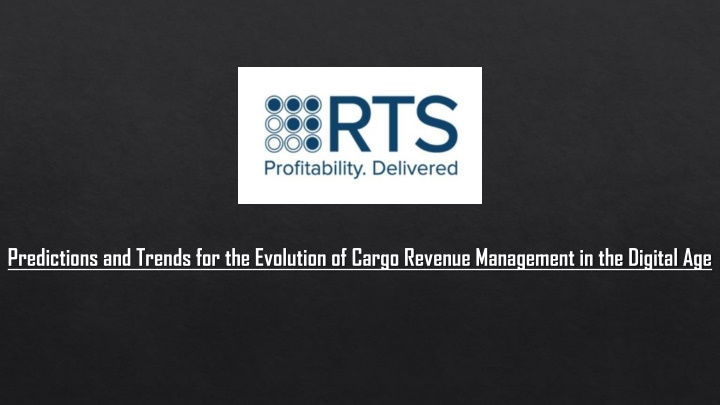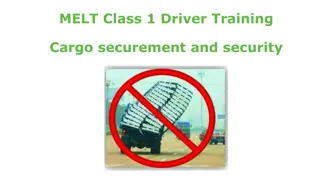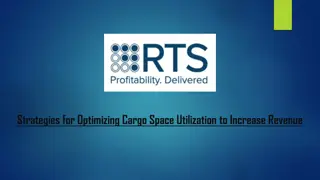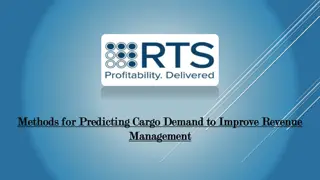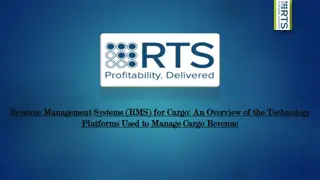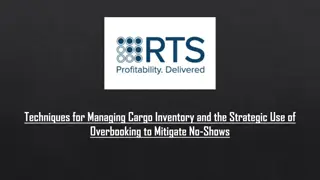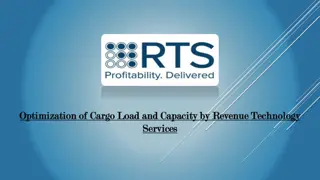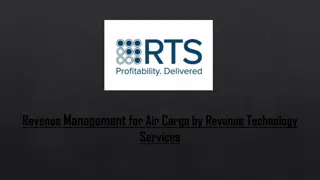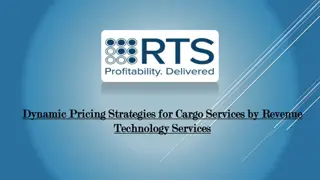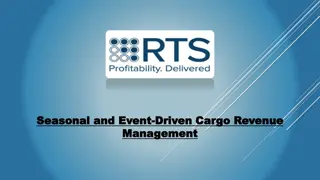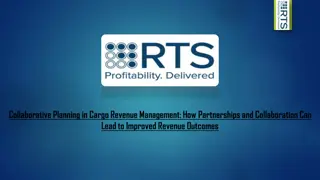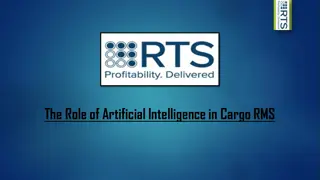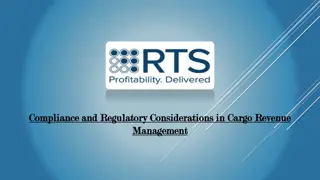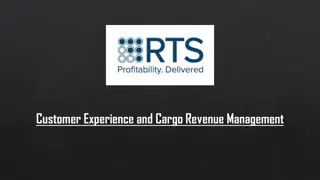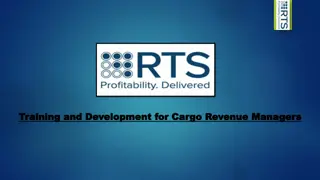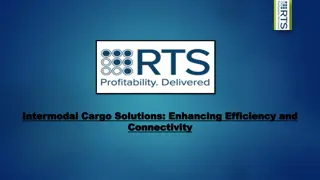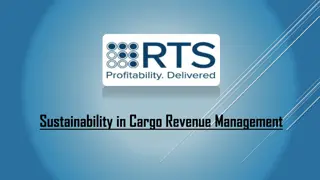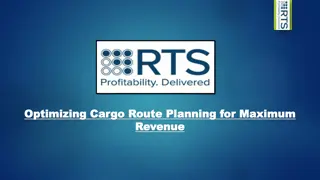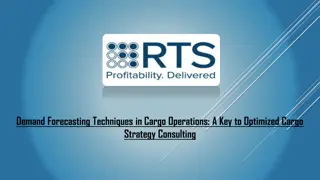Predictions and Trends for the Evolution of Cargo Revenue Management in the Digital Age
In the ever-evolving landscape of global trade, cargo revenue management is undergoing a transformative shift driven by digital innovation. As we look towards the future, the integration of advanced technologies promises to revolutionize cargo pricing and revenue management, ensuring more efficient, profitable, and resilient logistics operations. Here, we explore the key predictions and trends that are set to shape the evolution of cargo revenue management in the digital age.n
Download Presentation

Please find below an Image/Link to download the presentation.
The content on the website is provided AS IS for your information and personal use only. It may not be sold, licensed, or shared on other websites without obtaining consent from the author.If you encounter any issues during the download, it is possible that the publisher has removed the file from their server.
You are allowed to download the files provided on this website for personal or commercial use, subject to the condition that they are used lawfully. All files are the property of their respective owners.
The content on the website is provided AS IS for your information and personal use only. It may not be sold, licensed, or shared on other websites without obtaining consent from the author.
E N D
Presentation Transcript
Predictions and Trends for the Evolution of Cargo Revenue Management in the Digital Age
In the ever-evolving landscape of global trade, cargo revenue management is undergoing a transformative shift driven by digital innovation. As we look towards the future, the integration of advanced technologies promises to revolutionize cargo pricing and revenue management, ensuring more efficient, profitable, and resilient logistics operations. Here, we explore the key predictions and trends that are set to shape the evolution of cargo revenue management in the digital age.
1. Advanced Data Analytics and Predictive Modeling One of the most significant trends in cargo revenue management is the increased reliance on advanced data analytics and predictive modeling. With vast amounts of data generated from various sources such as IoT devices, shipment tracking systems, and market trends, companies can now harness this information to make more informed decisions. Predictive analytics can forecast demand fluctuations, optimize cargo pricing strategies, and improve capacity utilization, ultimately enhancing revenue management capabilities. 2. Artificial Intelligence and Machine Learning Artificial intelligence (AI) and machine learning (ML) are becoming indispensable tools in the realm of cargo revenue management. These technologies enable the automation of complex processes, from dynamic pricing adjustments to real-time inventory management. By analyzing historical data and identifying patterns, AI and ML algorithms can recommend optimal pricing strategies, detect anomalies, and even predict potential disruptions in the supply chain. This results in a more agile and responsive cargo revenue management system.
3. Dynamic Pricing Models Dynamic pricing is emerging as a crucial component of modern cargo revenue management. Traditional static pricing models often fail to account for real-time market conditions and demand variability. In contrast, dynamic pricing leverages real-time data to adjust prices based on factors such as capacity, demand, and competition. This approach ensures that cargo services are priced optimally, maximizing revenue while maintaining competitive edge. 4. Blockchain Technology for Enhanced Transparency Blockchain technology is set to revolutionize cargo revenue management by providing unparalleled transparency and security in transactions. By creating an immutable ledger of all cargo-related activities, blockchain can streamline documentation, reduce fraud, and enhance trust among stakeholders. This technology also facilitates more efficient contract management and dispute resolution, contributing to smoother and more reliable revenue management processes.
5. Integration of Internet of Things (IoT) The integration of IoT devices in cargo management systems offers real-time visibility into the status and condition of shipments. Sensors can monitor factors such as temperature, humidity, and location, providing valuable data that can be used to optimize cargo handling and pricing. For instance, real- time monitoring can enable dynamic adjustments in pricing based on the condition and timeliness of cargo delivery, ensuring that revenue management is closely aligned with service quality. 6. Customer-Centric Approaches In the digital age, customer expectations are higher than ever. Cargo revenue management is increasingly adopting a customer-centric approach, focusing on personalized services and flexible pricing options. By leveraging customer data and preferences, companies can tailor their offerings to meet specific needs, enhancing customer satisfaction and loyalty. This shift towards customer- centricity not only drives revenue growth but also strengthens long-term relationships with clients.
Conclusion The future of cargo revenue management lies in the seamless integration of advanced technologies and data- driven strategies. As the industry continues to embrace digital transformation, companies that leverage AI, IoT, blockchain, and dynamic pricing models will be better positioned to navigate the complexities of the global market. By adopting these innovations, cargo revenue management can evolve to become more efficient, transparent, and customer-focused, paving the way for a more prosperous and resilient future.
